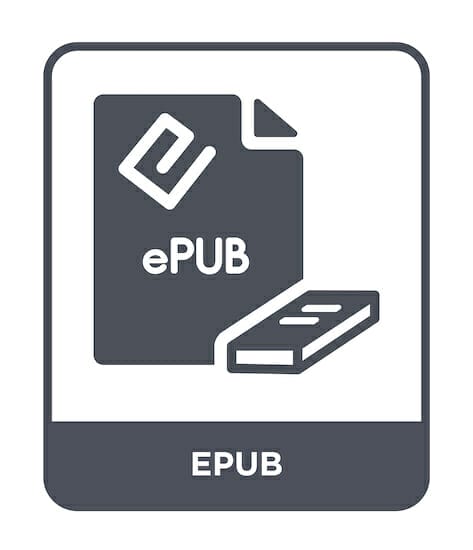You’ve written your book and now you’re trying to decide what format to use to put it out into the world. Or maybe you’re still considering writing your book but you want to decide which format to use prior to writing.
You’ve come to the right place.
The format you choose to host your book plays a big part in who reads your book and who starts talking about your book. As you’re likely aware, when it comes to marketing, word-of-mouth reviews is one of the best types of marketing.
Writing your book is the first big step. Publishing your book in the format that’s best for your audience greatly influences how much you impact the industry.
One of the big factors in choosing which type of format to use to publish your book comes down to one question: Who is your target audience?
The second big factor to ask is: Where is your target audience most likely to read your book?
And lastly: Which service supports the format your audience is most likely to read?
If you publish your book but it’s not in a format readily accessible for the readers you hope will gravitate to your work, it doesn’t matter how much time you’ve put in.
It’s imperative to think through the above questions and then consider which format is best for you.
Once you have the answer to these questions you can move forward efficiently and relatively quickly in publishing your book and putting it online for the masses.
What are Epub and MOBI?
Before jumping into exactly what Epub and MOBI are, it’s important to note that both are digital reading formats.
While Epub is similar to PDF, which can be printed and read as a hard copy, Epub is not intended to be a hard copy version.
Both Epub and MOBI are meant to be digital reading formats and not hardcover or softcover reading material.
You can use both Epub and MOBI and still publish a hard copy version of your book, but each version has its own pros and cons. The different advantages of each digital version should be considered as you factor in your own needs and which format is best for your writing goals.
What Is The Difference Between Epub Vs MOBI Files?
MOBI (mobipocket e-book format) is most commonly a Kindle format, while Epub is not compatible with Kindle. MOBI is most compatible with Kindle because MOBI is Amazon’s digital reading format.
Let’s jump into a few of the key differences between Epub and MOBI.
Epub (also styled ePub) stands for electronic publication. It is an e-book with the extension .epub (like the extensions .pdf, .doc, .docx, etc.).
Epub has gone through multiple versions since its original approval in 2007. Today it is compatible with many e-readers and you also have the option of using compatibility software for computers and smartphones, as well as tablets.
It’s said that Epub “is the most widely supported vendor-independent XML-based (as opposed to PDF) e-book format.” However, it is not supported by Kindle.
Epub is a viable option if you want to use your writing as a lead magnet or even just a free giveaway. If you want to create a free download and offer it to readers who subscribe to your newsletter, offer a free giveaway with every pre-order of your book, etc., Epub is a beneficial choice for you.
However, if you want to promote your work, note that Epub cannot be promoted on Amazon. If you use Epub only, you will not have access to the rankings Amazon can give you.
MOBI, on the other hand, is Amazon’s digital book format and directly compatible with Kindle. If you want to sell your book on Amazon and heighten your chances of landing in a particular category on Amazon, MOBI is the choice for you.
MOBI is also secure under Digital Rights Management (DRM). According to selfpublishing.com, “Your published MOBIs can never be stolen or leaked by third-party, unauthorized accounts, preserving your hard-earned royalties. With DRM protection, copyright infringement on e-books can be minimized and even stopped, so authors can receive the profits they rightfully deserve.”
If you want to publish your work but are worried about your content being stolen or not receiving your profits, MOBI is a secure choice.
Can Epub be Read on a Kindle?
Epub files can be converted to MOBI files to be read on a Kindle, but Epub cannot be read on Kindle without a conversion.
According to pcmag.com, “The key is a free piece of software called Calibre. Available for Windows and Macs, it can reformat almost any kind of e-book for most e-book readers, although cracking the copy protection on books purchased from Amazon or certain other stores is forbidden.”
You will need to know the current model of your reader and you will most likely use an authorized email address to send the documents to your Kindle.
Calibre has been in use for a decade, is free and helps you manage your e-books as well as share and backup your library.
Pros and Cons of Epub vs MOBI for Books
Epub is well-known, often used, and recognized as a similar option to PDF’s. While it is easily accessed on many devices, if your goal is to land on Amazon charts Epub is not the option for you. Epub is not supported by the Amazon Bookstore.
On the other hand, Amazon owns MOBI and this is the standard format for all of Amazon. Because of this, MOBI can only be accessed through Kindle.
According to selfpublishing.com, “Any author or publisher seeking to market books will likely publish on Amazon, which is considered to be the largest e-book seller in the world with millions of subscribers.”
If you are a new author hoping to make a dent with your first book, choosing the MOBI format may be worth considering. Using Epub will negate your chances of hitting Amazon charts, putting your book in the Amazon Bookstore, and reaching the millions of potential readers who use Amazon.
That said, MOBI is compatible with Kindle specifically, so depending on your target audience, it may also be worth considering using the Epub format.
It’s crucial to know who your target audience is, know what format they are likely to enjoy most, and of course, what they are already using.
If Amazon’s platform is appealing to you, but your target audience is not present on Amazon, no matter how many potential readers are in the Amazon space, converting those potentials into actual readers is slim.
However, if you know your target audience prefers to read via an e-book format and simply needs access to your book in any e-book format, you might consider using Epub. This way, your book will be available to many readers in many formats.
Which To Choose?
Choosing which format to publish your book is a crucial step in your writing journey. As you consider these two options, the pros and cons of each, and your own book needs, remember you aren’t locked in to either one.
If you’re torn between a digital format, which one, and a hard copy (hardcover or softcover), consider going for all three. Publish your book and use Epub, MOBI, and release a hard copy version.
Readers connect with all different formats, and today’s readers often know what they like and are pretty committed to it.
If you’re writing in the middle-grade or young adult book genres but your readers don’t have access to a tablet or computer, publishing a softcover version will help you reach these readers much more easily.
If you’re publishing a book for adults who vacation and don’t want to pack an extra suitcase just for their books, publishing a digital format will help you reach them.
Knowing your target audience is much of the battle of marketing.
You could write the best book out there, but if it’s not published in a format that connects with your readers’ and their needs, you won’t be able to build a loyal readership as quickly.
And besides, when it comes to marketing, yes you should target your intended readers, but having options for other readers is not a bad choice.
Reach as many people as you can with your book and you might be surprised how many new readers you are able to bring on board.
As you make your choice, consider your target audience and your writing goals, but also consider the option that maybe all three choices could be right for you.
The more readers you can connect with, the more your book will be read, shared, and the more opportunity you will have for future books.



